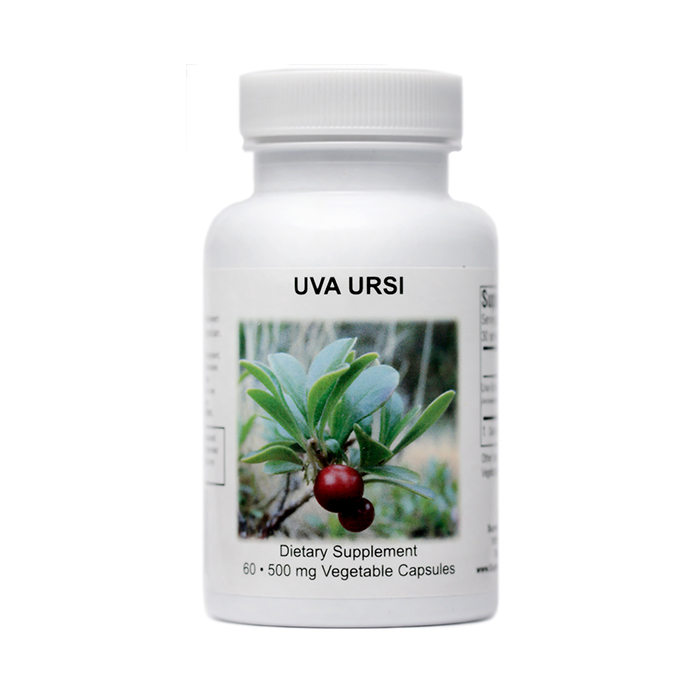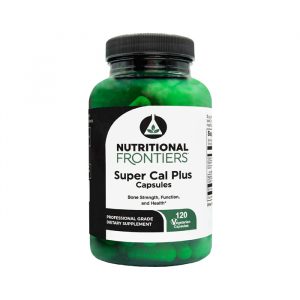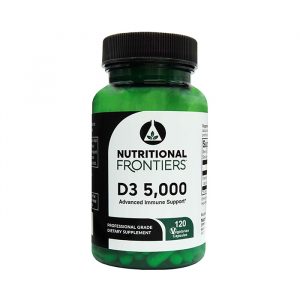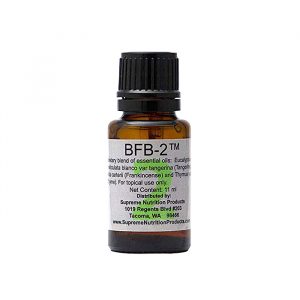Description
Uva Ursi by Supreme Nutrition– Herbal Support for Urinary Health and Antimicrobial Protection
Uva Ursi (Arctostaphylos uva-ursi), also known as bearberry, is a powerful herbal remedy with a long history in European and Western herbalism. Used for over 2,000 years, it has been recognized for its effectiveness in treating urinary tract infections (UTIs) and other health concerns. The leaves, the primary medicinal part of the plant, have traditionally been prepared as tea or powdered for encapsulated products, safely utilized since the 1970s.
The earliest documented use of Uva Ursi dates back to the 13th century in a Welsh medical text. Although more commonly used in Northern Europe, it gained widespread popularity across the continent by the 18th century and became an “official medicine” by the early 19th century. Historically, it was used to treat a variety of conditions, including kidney stones, diabetes, gonorrhea, edema, and as a natural diuretic.
Key Benefits of Uva Ursi
1. Powerful Antimicrobial Properties
Research has shown that Uva Ursi has strong antimicrobial activity. It combats a wide range of bacteria and fungi, including Staphylococcus aureus, Escherichia coli, and Candida albicans. This makes it a reliable remedy for fighting bacterial infections, including those related to urinary health.
2. Effective Against Urinary Tract Infections (UTIs)
Uva Ursi has been traditionally used to treat UTIs. Modern studies confirm its ability to prevent UTIs, even in high-risk populations. The herb’s antimicrobial activity targets bacteria like E. coli, which often cause urinary infections, and prevents bacterial growth by making them more vulnerable to destruction.
3. Antiparasitic and Antifungal Activity
Research shows that Uva Ursi effectively inhibits the growth of various parasites and fungi. It has demonstrated action against pathogens like Neisseria gonorrheae (causing gonorrhea), Shigella species, and Mycobacterium, offering broad-spectrum antimicrobial protection.
4. Supports Kidney Health and Stone Prevention
Traditionally used for kidney stones, Uva Ursi has been found to inhibit the formation of calcium oxalate kidney stones by up to 95%. Additionally, it helps the body clear oxalates, which can contribute to pain syndromes and other health issues.
5. Antiviral Benefits
Uva Ursi has been shown to have antiviral properties, particularly against viruses like Herpes simplex type 2, influenza virus A2, and vaccinia virus. This makes it a valuable herbal option for those dealing with viral infections.
How Uva Ursi Works
The main active component of Uva Ursi is arbutin, which makes up 7-17% of the leaf’s dry weight. Arbutin naturally converts into hydroquinone in the body, a compound with potent antimicrobial properties. Aside from this, arbutin offers antioxidant and anti-inflammatory effects, reducing inflammation markers such as TNF-alpha and IL-6. This dual action of Uva Ursi makes it highly effective for urinary health, antimicrobial defense, and reducing inflammation in the body.
In addition to arbutin, it contains other active compounds such as tannins, anthocyanadins, quercetin derivatives, and allantoin. These ingredients work together to combat a variety of infections while supporting kidney and bladder health.
Research
Several studies confirm Uva Ursi’s effectiveness in treating infections and supporting urinary health. Research highlights include:
- Antimicrobial Action: Uva Ursi extracts have shown strong activity against bacterial strains like Staphylococcus aureus, E. coli, and Neisseria gonorrheae, as well as fungi such as Candida albicans.
- Kidney Stone Prevention: Clinical trials demonstrate that it can inhibit calcium oxalate stones by up to 95%, making it an excellent natural option for preventing kidney stones.
- Antiviral Potential: In vitro studies have shown that Uva Ursi is effective against viruses such as Herpes simplex and influenza, adding to its versatile health benefits.
Additional Uses
Beyond its use for UTIs and antimicrobial support, Uva Ursi offers relief for various other health concerns, including:
- Kidney stones
- Diabetes
- Gonorrhea
- Edema
- Inflammation
- Fungal infections
- Pain syndromes
Its versatile applications make it a valuable supplement for maintaining overall health.
Why Choose Uva Ursi?
It provides natural, effective support for urinary health and a wide range of infections. Whether you’re dealing with a UTI or looking to prevent kidney stones, Uva Ursi offers potent antimicrobial and anti-inflammatory benefits. Its rich history in traditional herbalism and modern scientific backing ensure you receive safe, reliable health support from this trusted plant.
Customer Reviews
“After struggling with recurrent UTIs, I started taking Uva Ursi and noticed a significant reduction in infections. It’s been a lifesaver!” – Amanda P.
“I’ve been using Uva Ursi for kidney support, and I feel healthier. My doctor even noticed an improvement in my overall kidney function!” – John D.
Call to Action
Support your urinary and kidney health with Uva Ursi. Order Now and experience its natural antimicrobial benefits!
Frequently Asked Questions (FAQs)
Q1: How does it help with urinary tract infections?
It contains arbutin, which converts to hydroquinone in the body, providing powerful antimicrobial action. This helps combat bacteria responsible for UTIs and prevents recurrent infections.
Q2: Is Uva Ursi safe for long-term use?
While it is safe for short-term use, it’s recommended to take a break after finishing one bottle (about 1-2 months). Long-term use without breaks is discouraged due to the potency of some of its components.
Q3: Can Uva Ursi help prevent kidney stones?
Yes, it has been shown to reduce the formation of calcium oxalate kidney stones by up to 95%, making it a great natural preventive option.
Q4: Are there any side effects?
it is considered safe for most adults but is not recommended during pregnancy, breastfeeding, or for those with kidney, liver, or retinal conditions. Always consult with a healthcare provider before use.
Q5: How should I take it?
The recommended dosage is 1-2 capsules twice daily, or as directed by your healthcare provider, for optimal results.






Reviews
There are no reviews yet.